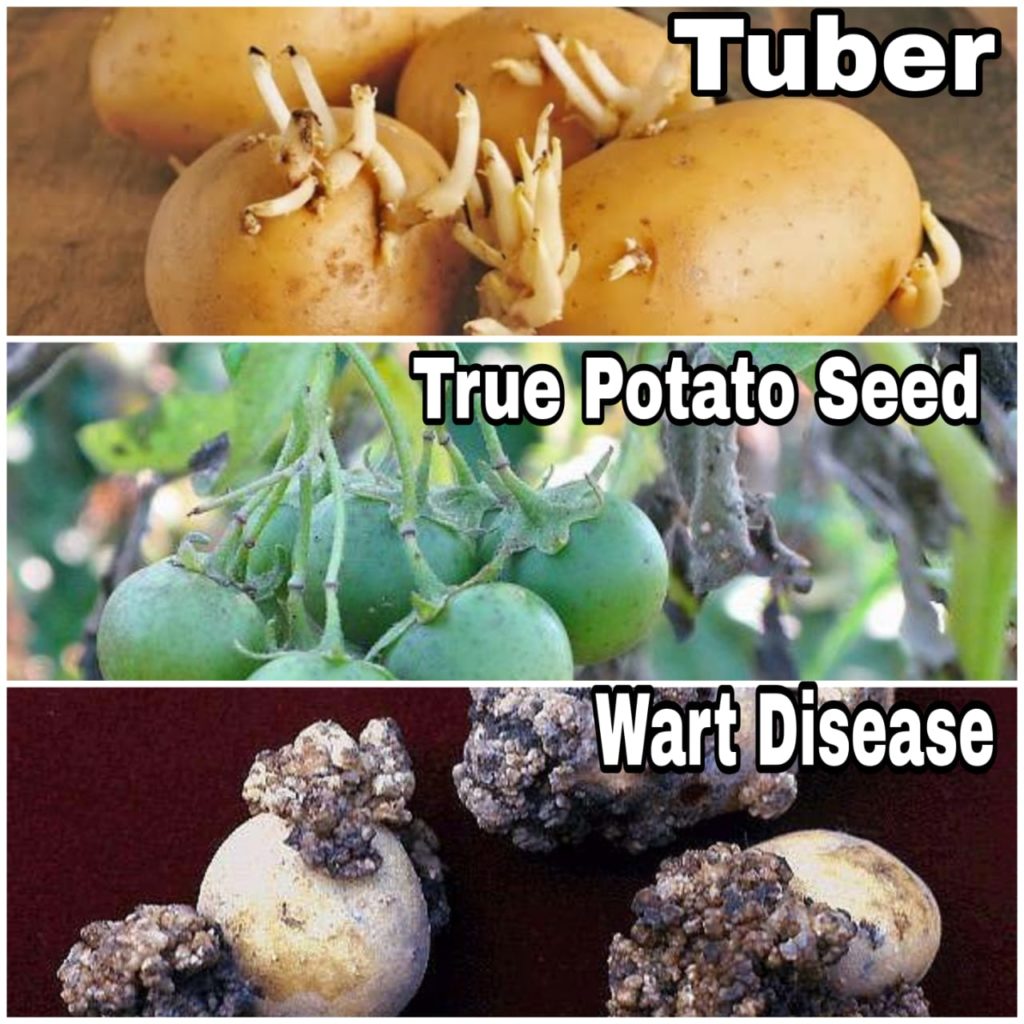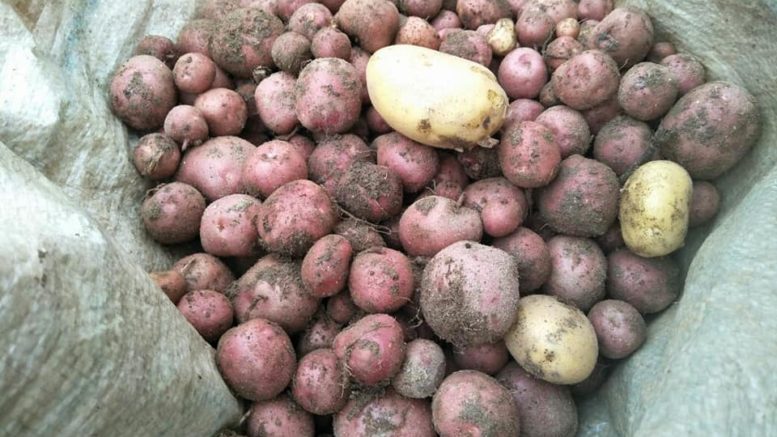Prior to 1986 Gorkhaland andolan, potato research institutes in Darjeeling used to be home to over 1200 varieties of potatoes, out of which Darjeeling Red Round variety was much in demand. Our contributor Sanjog Thapa Chhetri highlights how this variety is fast disappearing.
Potato is not just a vegetable or field crop but it is a staple food of many countries. The origin of the potato is in Peru where it is considered to have been cultivated as far back as 8000 – 5000 BC.
In India, it was first introduced by the Portuguese and quickly became major delicious food and spread all over the country.
Potato is grown either by Tubers or Seeds. The tuber is mostly used for cultivation in our country and after the flowering, small berry type seed comes out which is rare to see due to many factors are known as True potato seeds.
*For Tuber production, short day length is required but for True potato seed (TPS) production, Long day length is required.
Is there any relations between the Darjeeling and the Potato?
Yes, until 1958, Darjeeling used to be the number one seed-producing region of the country. Just like Darjeeling Tea and Darjeeling Mandarin, “Darjeeling Red Round” used to be the most dominant commercial variety of the country. Besides the Darjeeling area, the local varieties used to cultivate extensively in many areas of the country viz Bihar, Odisha, Punjab, Uttar Pradesh, Madhya Pradesh, Kashmir, etc.
Does Darjeeling’s climatic conditions play a major role in Potato seed production?
Darjeeling is famous for its cold climatic conditions, not only it attracts tourist from all over the world, but the perfect day and night length (Photoperiodism) and cooler climate at the time of flowering is the perfect match for the production of True potato seeds.
In the plains of West Bengal, tubers are used instead of True potato seeds, and only Darjeeling has the capability of producing True potato seeds in West Bengal. In the plains of West Bengal, flowering is seen but the flowers die quickly without producing any True potato seeds due to warm climate and unfavourable day and night length conditions. This indicates that the Darjeeling does not only have the capability to produce True Potato seeds but it used to have the most dominant commercial variety that is DRR.
Why Darjeeling has faded from the production of True Potato seeds?
In 1953, Holland reported a new disease, which is known as Wart disease of Potato. This Wart disease is caused by the single-celled fungus, Synchytricum endobiotium. Under certain stress conditions, this soil-borne fungus can produce resting spores which can survive up to 20-30 years in the soil.

In 1958, Ganguly and Paul reported the disease but this time, it is from the Darjeeling hills. Though we can find many controversies regarding the introduction and spread of the wart disease in Darjeeling. Due to the high survival and infection rate of the fungus, the Govt. Of India declared as an endemic disease.
It has been more than 60 years, Darjeeling is still in the “domestic quarantine” phase that means we cannot sale our potatoes to our neighbouring districts and States because it is under The Destructive Insect and Pest Act.
Now, mainly Shimla and Nilgiri hills is famous for seed production of potato in our country. Darjeeling Red Round gradually losses it’s identity and the clonal selection from the DRR are found on the name of Kufri Red and Kufri Sindhuri developed by Central Potato Research Institute, Shimla.
Since then, we have lost everything regarding seed production and the famous name, “Darjeeling Red Round”. Science has advanced to the upper limits but till date, our indigenous Potato is not even protected and no such strong initiative has yet been taken by the Government.
We still believe Darjeeling has huge potential for seed production of potato and can fetch a huge amount of profit to the country.
[Writes: Sanjog Thapa Chettri, he is a PhD Scholar of Plant Pathology at Bidhan Chandra Krishi Viswavidyalaya]



Leave a comment